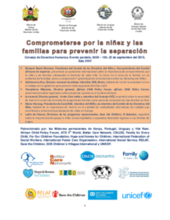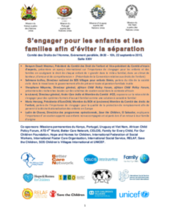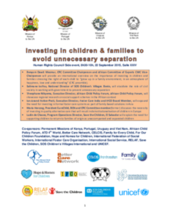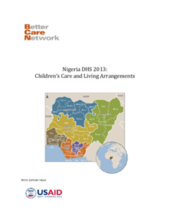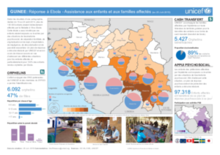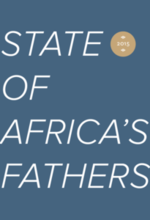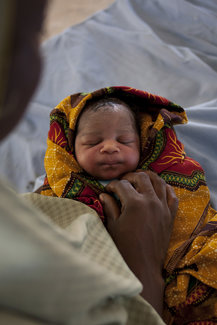

Displaying 351 - 360 of 634
Este evento paralelo del Consejo de Derechos Humanos incluyó presentaciones en separación familiar en los contextos africanos, asiáticos, europeos, y latinoamericanos.
This Human Rights Council Side event included presentations on family separation in the African, Asian, European, and Latin American contexts.
This Human Rights Council Side event included presentations on family separation in the African, Asian, European, and Latin American contexts.
This video is presented by Better Care Network and UNICEF. It tells the story of Maureen, a young girl in Kenya who was separated from her family and sent to live in a children's home. It also features interviews with experts, including those who have lived in children's homes, explaining some of the negative impacts of institutionalization and highlights the efforts of Care Reform Initiatives to deinstitutionalize children in Kenya and Ghana.
This country brief provides an overview of data on children’s living arrangements in Nigeria, extracted from the 2013 DHS survey.
This article reports on the need for local adoption solutions for the children who have been orphaned by Ebola in Sierra Leone.
This article from BBC News sheds light on the efforts of one man in Sierra Leone, who has since died of the Ebola virus, to provide care to children who have been orphaned by Ebola and to reintegrate them into their communities.
Family for Every Child is recruiting a Regional Coordinator for a Learning Network on Recovery and Reintegration from Child Sexual Exploitation in Sub-Saharan Africa.
Selon les résultats d’une cartographie, réalisé du 16 au 24 août 2014, plus de 140 000 enfants etaient indirectement affectés par la Maladie à Virus Ebola en Republique de Guinee.
This report from Sonke Gender Justice is an adaptation of the global State of the World’s Fathers report, produced by Mencare. The report highlights the research and findings from the State of the World’s Fathers report that are specific to Africa.

